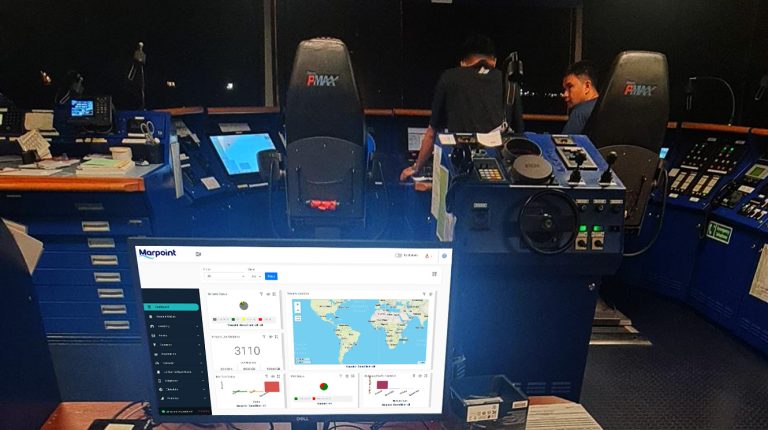Cybersecurity Search Engines are specialized search engines or tools designed to help cybersecurity professionals and researchers find information related to cybersecurity threats, vulnerabilities, solutions, and other relevant topics.
Cybersecurity search engines also index devices and networks that are connected to the internet, which can be useful for security professionals who are trying to identify potential vulnerabilities. Cybersecurity search engines are designed to index and prioritize cybersecurity-related information, which can be helpful for users who are looking for specific types of information.
Benefits of using a cybersecurity search engine
- More specialized results: Cybersecurity search engines are designed to index and prioritize cybersecurity-related information. This means that you are more likely to find the information you are looking for when you use a cybersecurity search engine.
- Deeper insights: Cybersecurity search engines often provide more detailed information about cybersecurity threats and vulnerabilities than Google. This can be helpful for security professionals who are trying to understand a threat or vulnerability in more depth.
- Better discovery: Cybersecurity search engines can index devices and networks that are connected to the internet. This can be helpful for security professionals who are trying to identify potential vulnerabilities in their attack surface.
Top 10 Cybersecurity Search Engines
This list is based on a variety of factors, including popularity, features, and user reviews. It is important to note that there is no one “best” cybersecurity search engine, and the best search engine for you will depend on your specific needs.
1. Shodan
Shodan is a search engine that indexes devices connected to the internet. It can be used to find devices such as webcams, routers, and industrial control systems that are exposed to the public internet.
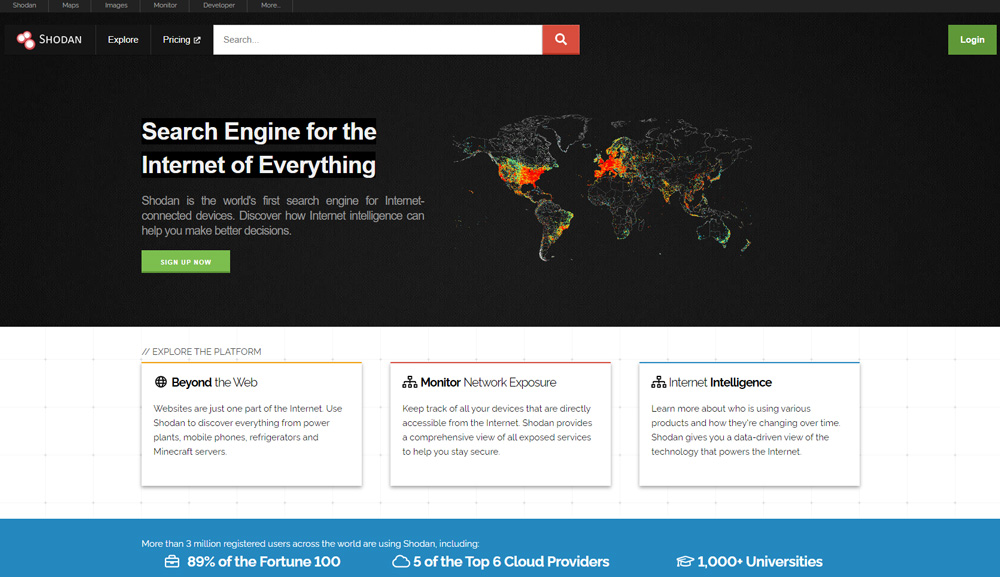
Shodan website
2. Censys
Censys is another search engine that indexes devices connected to the internet. It is similar to Shodan, but it has a wider range of features, such as the ability to search for specific vulnerabilities and to search for devices that are using specific malware.
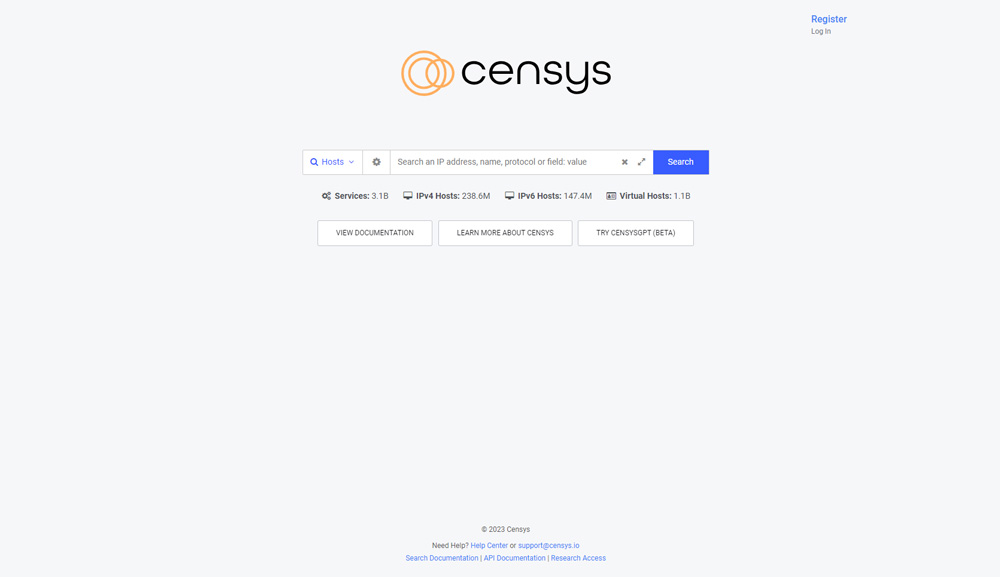
Censys website
3. ZoomEy
ZoomEye is a Chinese search engine that indexes devices connected to the internet. It is similar to Shodan and Censys, but it is focused on the Chinese internet.

ZoomEy website
4. GreyNoise
GreyNoise is a search engine that indexes IP addresses and domains associated with malicious activity. It can be used to identify and block malicious traffic.
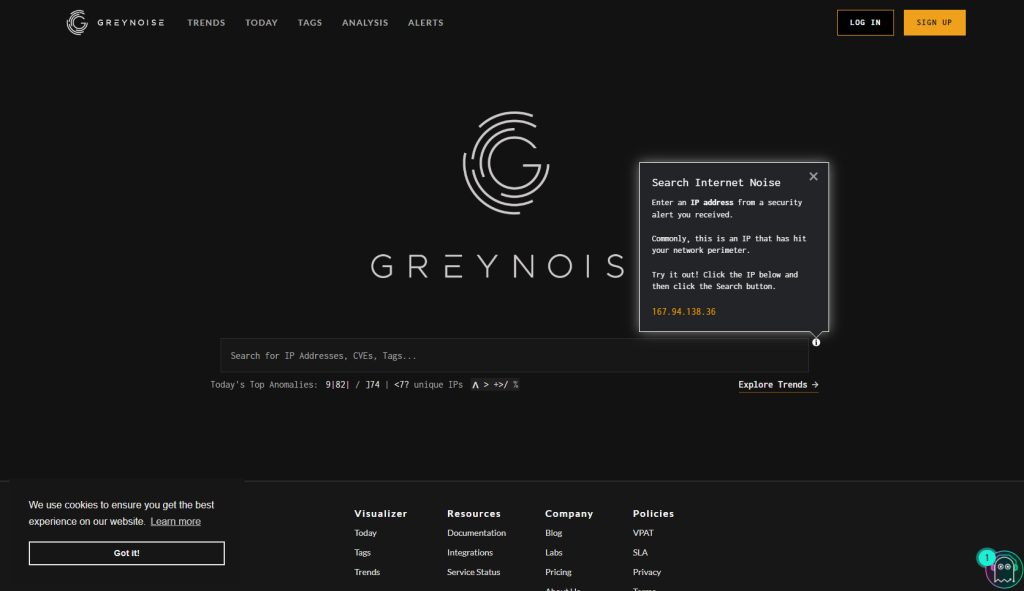
GreyNoise website
5. Pulsedive
Pulsedive is a search engine that indexes threat intelligence from a variety of sources, including security blogs, social media, and government agencies. It can be used to get up-to-date information on the latest threats.
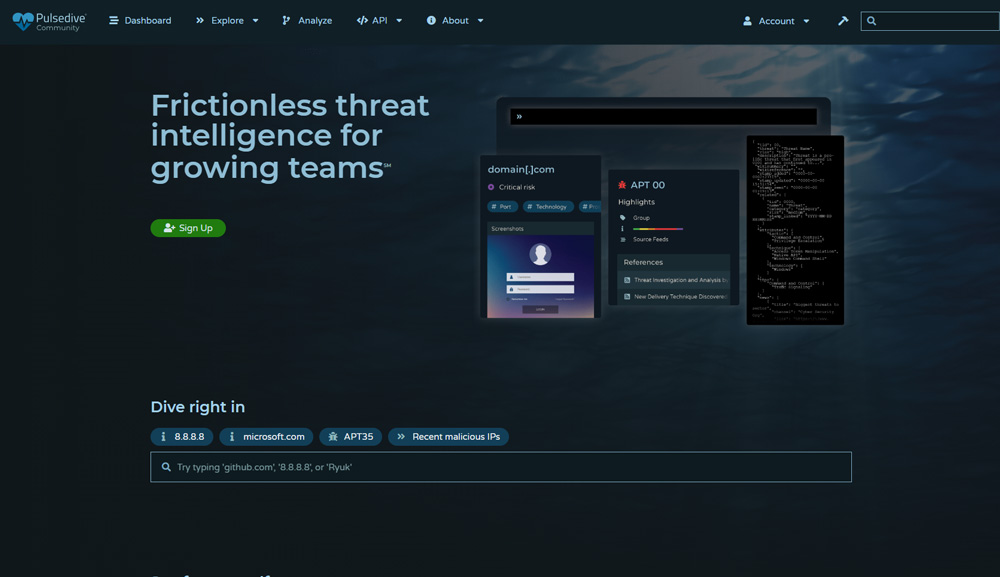
Pulsedive website
6. ONYPHE
ONYPHE is a newer cybersecurity search engine that is focused on attack surface discovery and attack surface management. It scans the internet and dark web for exposed assets and crawls the links just like a web search engine. Their data is searchable with a web form or directly from numerous APIs.
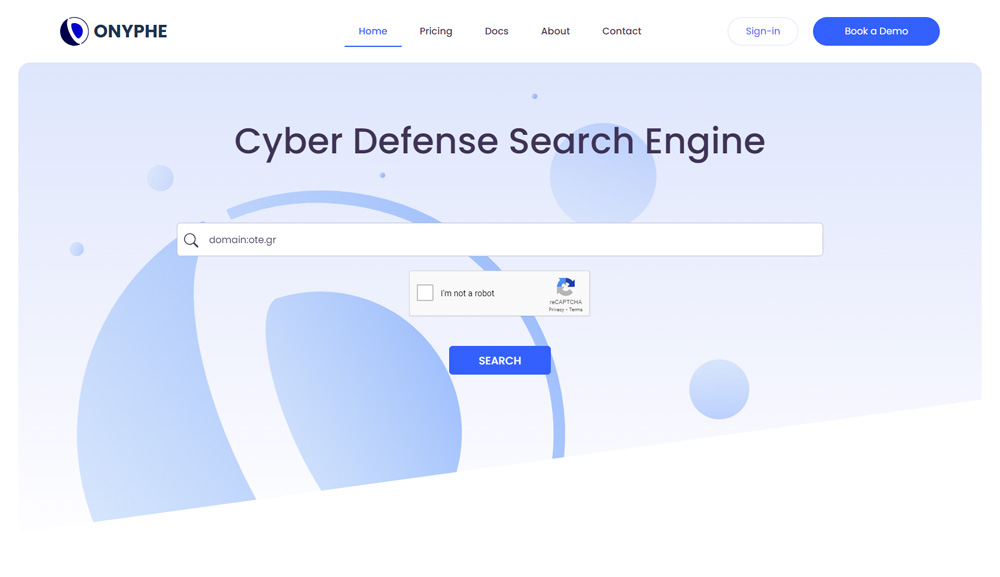
ONYPHE website
In addition to these general cybersecurity search engines, there are also a number of specialized search engines that focus on specific areas of cybersecurity, such as malware, vulnerabilities, and data breaches.
7. ExploitDB
ExploitDB is a search engine that indexes exploits for known vulnerabilities. It can be used by security researchers to test the security of their systems and by malicious actors to exploit vulnerabilities.
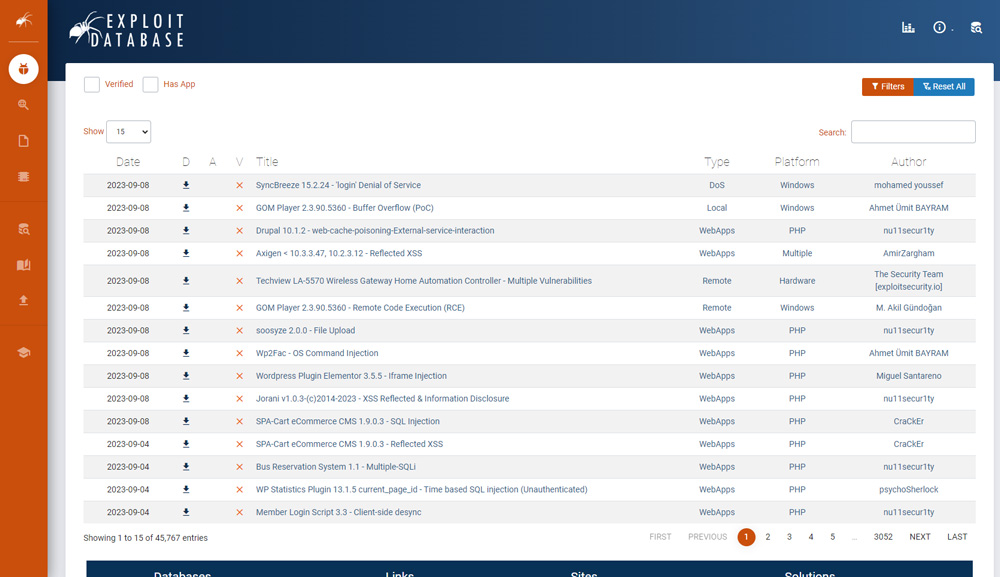
ExploitDB website
8. HaveIBeenPwned
HaveIBeenPwned is a search engine that allows users to check if their email address or password has been compromised in a data breach.
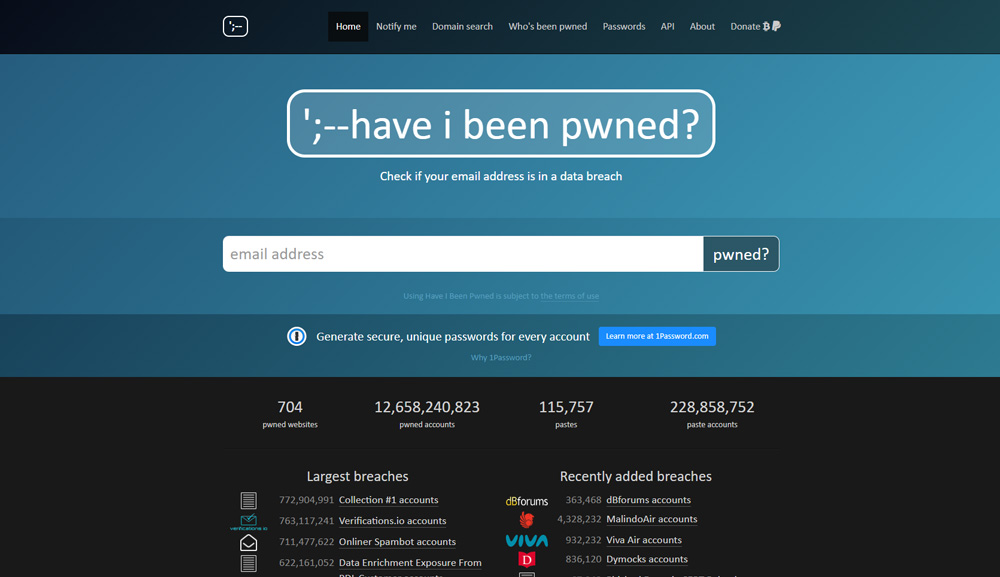
HaveIBeenPwned website
9. VirusTotal
VirusTotal is a search engine that allows users to scan files and URLs for malware.
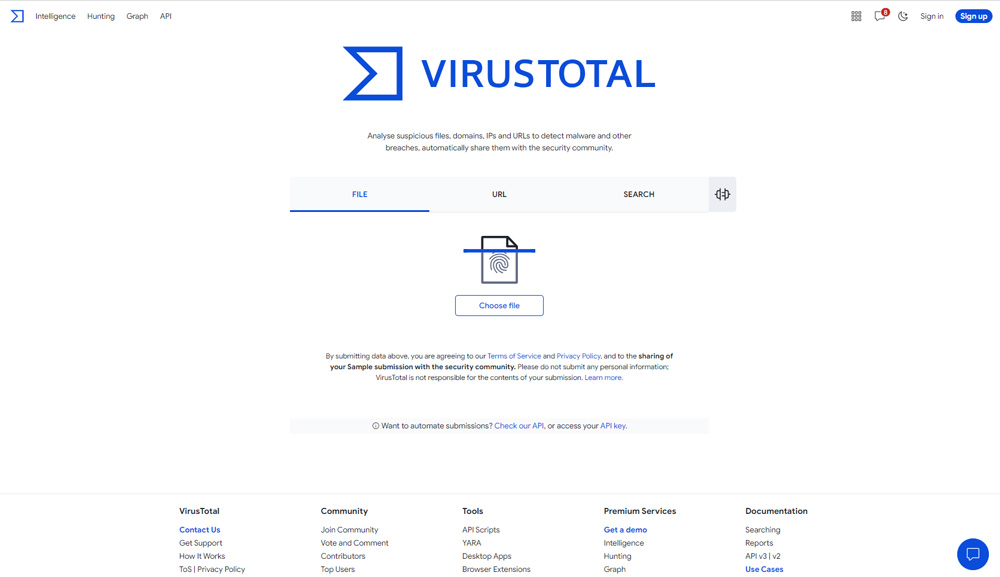
VirusTotal website
10. SecurityTrails
SecurityTrails is a search engine that provides information on DNS records, IP addresses, and domains. It can be used to identify malicious domains and to track the spread of malware.
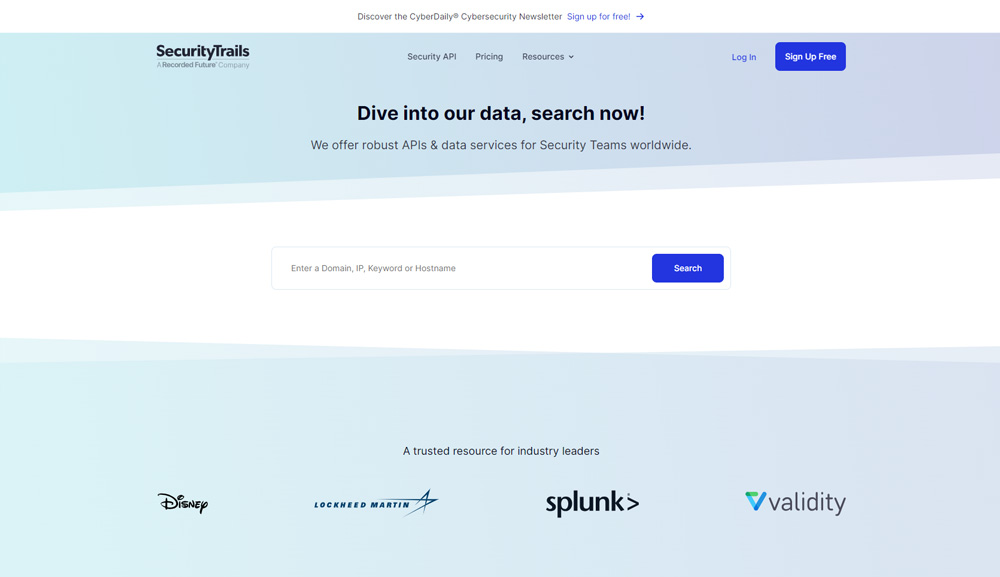
SecurityTrails website
Overall, cybersecurity search engines are a valuable tool for security professionals, and organizations seeking to enhance their cybersecurity posture by staying informed about threats, vulnerabilities, and the security status of their assets.
It’s essential to choose the right tools and resources based on your specific cybersecurity needs and objectives.
It is important to note that not all cybersecurity search engines are created equal. Some cybersecurity search engines are more comprehensive and reliable than others. It is important to do your research and choose a cybersecurity search engine that is right for your needs.


